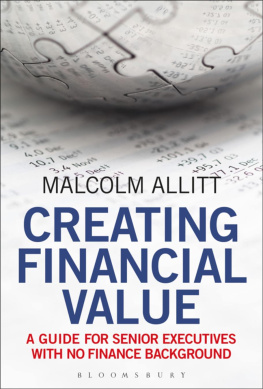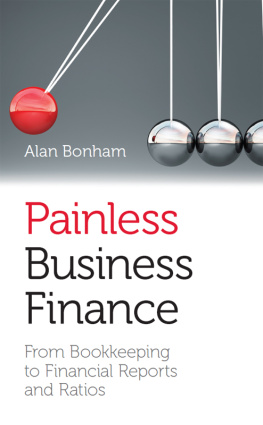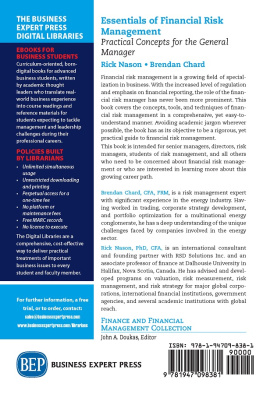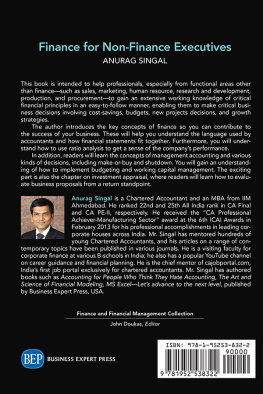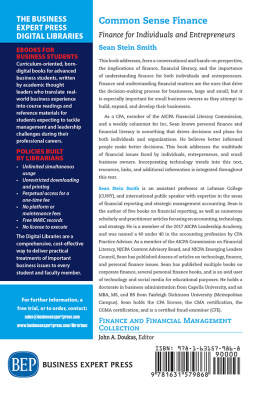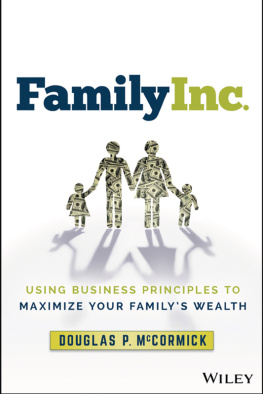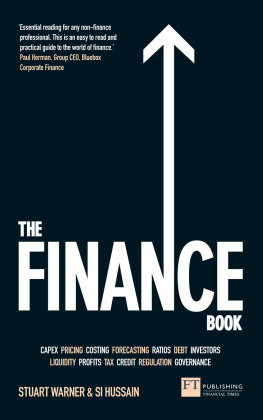Creating Financial Value
Creating Financial Value
A Guide for Senior Executives
with No Finance Background
Malcolm Allitt
Bloomsbury Information
An imprint of Bloomsbury Publishing Plc

Many people have helped bring this book to life, not least the hundreds of managers Ive worked with on general management and finance programmes at Ashridge. From them I learned what managers know and dont know and what they fear about the subject. Its those real-life guinea pigs who have helped me work out how to empathize with, and get essential concepts across to, anxious non-specialists.
My thanks go to all my colleagues at Ashridge whove not only invited me to work with them on management programmes but also helped me develop skill in the wonderful Ashridge teaching style, based on exercise and discussion closely applied to each managers specific business circumstances. Im especially indebted to my close colleague Bob Stilliard from whom Ive borrowed several ideas for exercises and to Robert Dickson, the inventor of the Pink Machine. Similarly, the team at Bloomsbury have been great in making practical suggestions and testing out some of the ideas with independent experts thanks for all your patient support.
Next, a huge thank you to friends and family for comments on early drafts and for your unwavering encouragement. William Barney reviewed the early chapters and my old friend Nick Dawson worked his way through the whole text alongside his day job as a busy senior manager. Both of them provided valuable insights and helped me reshape some of the denser passages.
Finally, extra special thanks to two very different people: Ian Thompson and Olive Coleman. Ian, thank you for being the first at Ashridge to encourage me into teaching finance, notwithstanding my background as a general manager rather than a finance specialist. Ive never looked back and Ive loved it all. And most important of all, my thanks to you, Olive. Im so grateful for the hours you devoted to reading successive drafts and offering thoughtful, patient and constructive advice at every stage. But most of all it was your faith and encouragement which helped me overcome years of self-doubt, finally set pen to paper, and make this project real.
Who is this book for?
The value of a company is measured by how much cash it will generate in the future.
Does this seem like a massive oversimplification? How about the human capital of an organization and the quality of its leadership? What about the intellectual property of the firm and all its products? Surely, the loyalty a firm generates is part of its value?
All of these factors, along with many others, are important in the success of the firm. But in the end, all are just elements which contribute to the companys one, dirty objective, which is to generate cash and you and your colleagues will eventually be judged by how well your decisions lead to positive cash generation.
This book is for you if:
The three short paragraphs above come as a surprise;
You have been promoted to a senior position but have had no systematic financial training (or training that was so long ago that its corroded to nothing);
Its a long time since you studied finance, and youre looking for an overview to review and consolidate earlier learning;
You tend to avoid discussions on finance but suspect that not having a basic command of the subject is, or will be, career limiting;
You feel that the finance youre in contact with is all about detail, and youd like to understand the broader context of where value comes from;
Youd like to build your confidence in this subject;
You think that finance is synonymous with balance sheet and profit and loss;
Youre a CFO or CEO working out how to develop a common language which will allow more of your senior colleagues to contribute meaningfully in important debates;
You are a budding (or actual) entrepreneur;
You have a general interest in how companies think about value creation;
You love the idea that all you need to know about business finance and value creation can be contained in one short book!
Although you might not have had any systematic training in this subject, I do assume you have some familiarity with basic financial data simply because, by the time youre in a senior position, youll have spent time playing games with the annual budget preparation or poring over the management accounts with your colleagues in monthly review meetings.
Whilst principally aimed at executives in the private sector, I hope this book will be of use and interest to leaders in the public sector. Here, annual income is usually fixed, so the task is to squeeze the maximum value out of the funds which are available. In the long term, this goes well beyond budgeting. To know that you are spending and investing wisely requires a clear understanding of what value is, and how it is measured, just as much as it does in the private sector. Although the book mainly uses the terms company and business, you should be able to transfer these ideas to your organization and the communities you serve.
Implicit throughout the book is the assumption that you operate in well-regulated, competitive markets.
Why all managers need to understand value creation
Most executives who reach a senior position get there because, some while back, they proved their expertise in sales, or marketing, or HR, or IT not because they were financial experts. Perhaps they showed initiative or were able to produce good work under pressure or showed skill at leading teams.
Big and sophisticated companies support and coach their rising stars to become managers and leaders rather than merely discipline experts. If you thrive in this role you get promoted again, and by the time youre in your thirties youve become a general manager. A general manager has moved a long way from the comfort zone of his original discipline. Now youre responsible for disciplines in which youve had no training, other than the odd week on a management development programme. Youre managing managers rather than discipline experts who speak your language. Oh, and youre now responsible for implementing the corporate strategy. If you survive all this and still have your head above water, you get promoted to the Operating Board.
Whether you like it or not, the higher you rise in a company, the closer you get to the ultimate responsibility: to see that the organization generates cash consistently, reliably and in adequate quantity. And if theres one area where your training and preparation might have been lacking, its likely to be in finance and how it works. If youre cowed by the bewildering stream of jargon your colleagues from finance spout, then its possible you react by remaining silent or by blustering. In both cases, you hope your ignorance will remain undetected, not only now, but until the end of your career.
The consequence of ignorance or fear is that it is difficult or impossible to contribute fully and meaningfully to important debates on your companys policy. This is a sad state of affairs for you as an individual, but its also a potentially serious and risky problem for your organization. A board or decision-making team of eight, of which, say, only three understand the financial implications of proposed actions, lacks the necessary informed diversity to optimize the probability of making good decisions consistently. If youre one of the silent or irrational five, you may have a big contribution to make, both to value creation and to risk management. But until you can express yourself in a common language with your colleagues from finance, you risk not being heard. And unless your decisions are based on sure foundations, you risk your company failing to maximize its value or, at worst, making disastrous mistakes.
Next page
